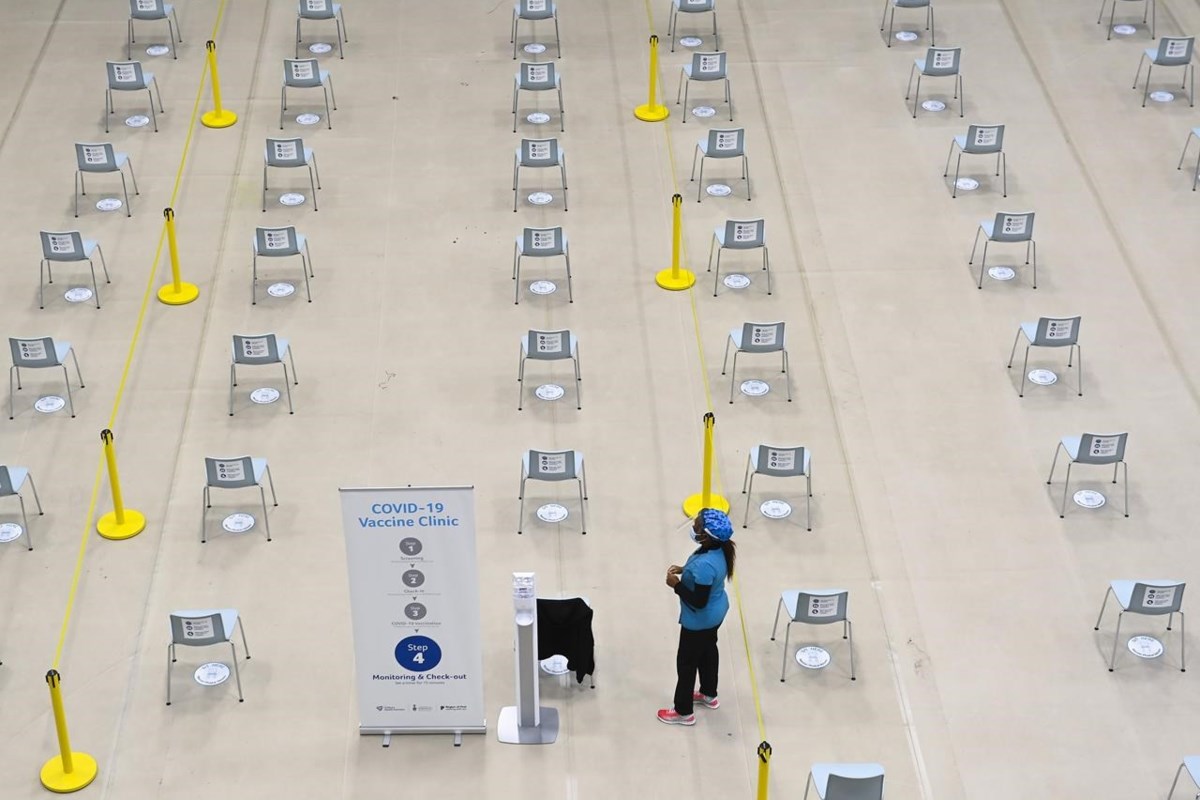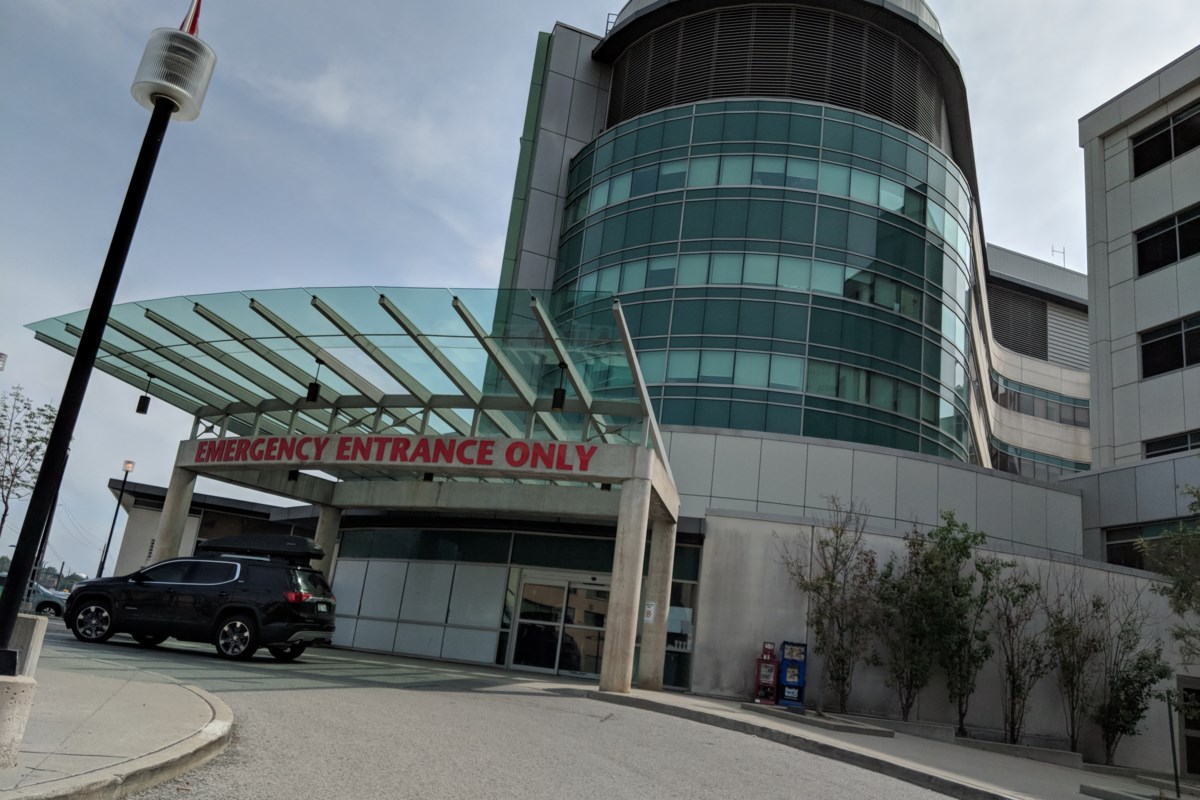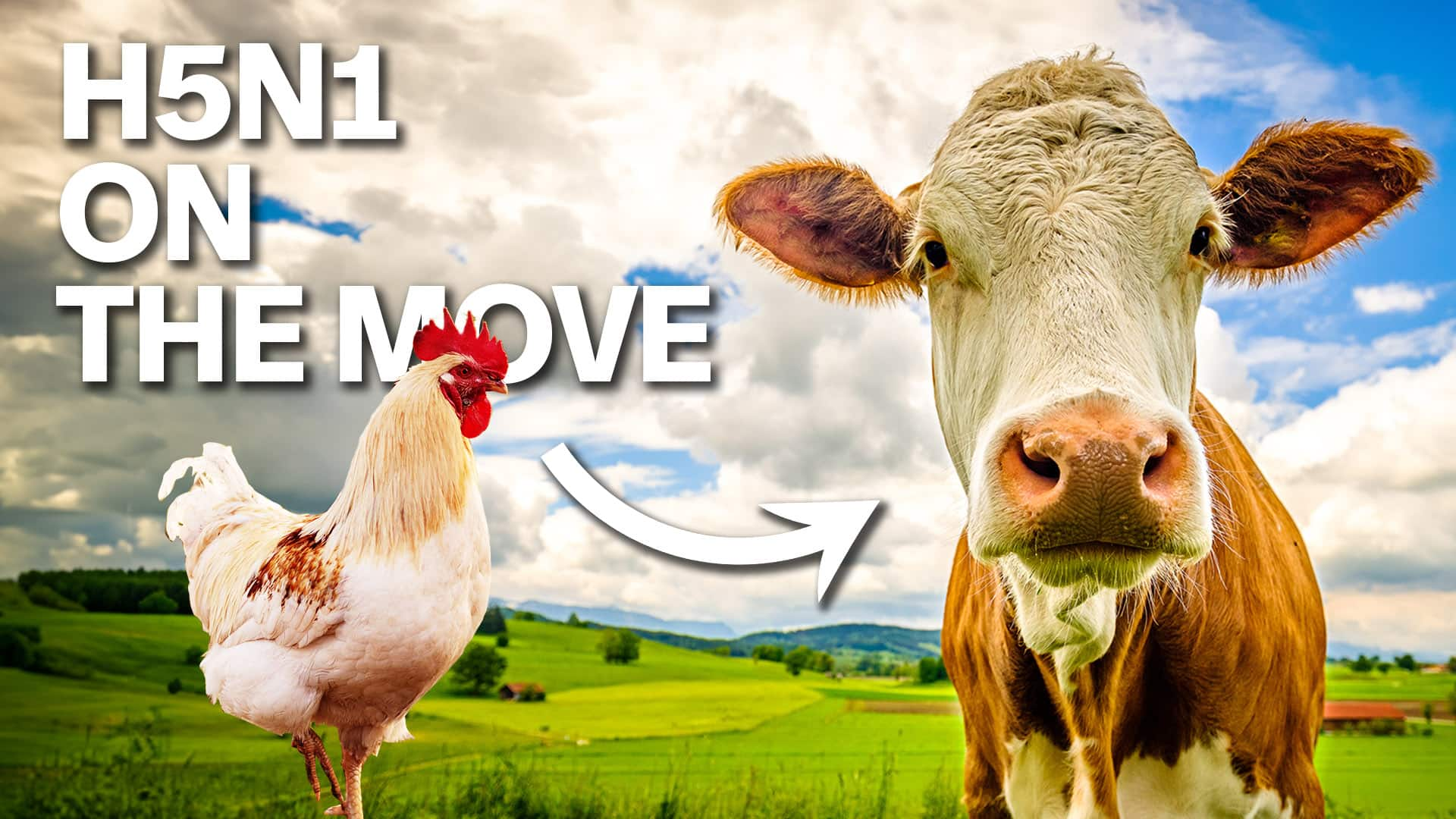Health
B.C. call centres to book vaccines will 'do better' after hectic first day: minister – The Record (New Westminster)

VANCOUVER — British Columbia’s health minister promised to “do better” on Monday after call centres to schedule vaccine appointments were overwhelmed on the first day of booking.
Adrian Dix said there were 1.7 million calls in less than three hours after the phone lines opened for people over 90 and Indigenous elders over 65 to book their appointments.
Dix said he believed that people who were not yet eligible for the COVID-19 vaccine were flooding the lines, but he also acknowledged that more staffing was needed.
“It’s really important in order to allow those over 90 to get their appointments that we only call when our age group becomes open for calling,” he told the province’s COVID-19 briefing.
“It’s also important that we do better. I know that people have called in and have waited a long time today.”
Dix said that more resources would be added in the coming weeks, as more age groups become eligible to call to book their vaccines.
People born in 1936 or earlier can start calling for appointments on March 15 and those born in 1941 or earlier can start to schedule their immunizations March 22.
Fraser Health was the only authority to launch an online booking platform on Monday, but Dix said a web-based system would become widely available on April 12.
Some residents with elderly parents said they spent hours redialing their health authority’s number and only got a busy signal or a recorded message telling them to call back later.
Julie Tapley, whose 90-year-old father lives in the Vancouver Coastal Health region, said she was frustrated that the authority had not yet established an online booking system.
“I just want to get in the queue and start the process so that (my parents) can return to their normal lives.”
B.C.’s provincial health officer, Dr. Bonnie Henry, said creating an online booking system is “quite a large project” and Fraser Health was the only authority with an existing platform.
Of about 80,000 people eligible to book appointments this week, roughly 26,000 have already received a shot, so a relatively small number of people should be calling, Dix said.
He said about 10,000 appointments were booked as of Monday afternoon and a “significant number” of those were scheduled through the Fraser Health online site.
Dix urged eligible residents and their families to keep calling in the coming days. There are plenty of appointments available and it is not a “first-come, first-serve” system, he said.
Although B.C.’s case numbers have been on the rise, Henry said some restrictions would be eased in the coming weeks as the weather warms and immunizations ramp up.
Outdoor gatherings, larger meeting places and layers of protection such as masks will still be recommended, she said.
“I like to think of it as slowly turning up the dial again rather than flicking a switch,” she said.
She also said she hopes to see the return of sports and in-person religious ceremonies within weeks.
Officials have been developing a plan with faith leaders to enable the gradual return of in-person services, as there are important dates in many religions coming up, Henry said.
A B.C. Supreme Court judge reserved his decision on Friday on a petition filed by three Fraser Valley churches who argued that a ban on in-person services violates charter rights.
Henry reported on Monday 1,462 new COVID-19 cases and 11 deaths over three days, pushing the death toll to 1,391 in the province.
She said there was one new outbreak in a long-term care home, the Cottonwoods Care Centre in Kelowna, where a high number of residents and staff had already been vaccinated.
The flare-up serves as a reminder that while vaccines are effective and prevent severe illness and death, they don’t necessarily mean that all transmission will be stopped, she said.
There have been 144 new cases that are variants of concern, bringing the total to 394 confirmed cases. Officials still do not know how about a quarter of the cases were acquired.
Henry became emotional when quoting Chief Robert Joseph, a knowledge-keeper with the Assembly of First Nations.
“We will celebrate our lives again, dream our dreams again and watch our children regain their hope,” Henry quoted him as saying, with tears in her eyes.
“That’s what we can look forward to in the coming months.”
This report by The Canadian Press was first published March 8, 2021.
Laura Dhillon Kane, The Canadian Press
Health
New technology to advance women’s cancer care at Southlake


|
|
NEWS RELEASE
SOUTHLAKE REGIONAL HEALTH CENTRE
**************************
This Cancer Awareness Month, Southlake is adding advanced technologies to detect and treat breast cancer and other women’s cancers thanks to generous community donor support, most recently through the HERE is Where Cancer Meets its Match campaign. New cancer care technology, including new mammography machines, the MyoSure System and the MOLLI 2® System will make a measurable impact in diagnosing and treating women’s cancers in the communities Southlake serves.
Southlake is installing three new mammography machines to expand its breast cancer screening program to 1,500 more women each year. Two of these machines have new biopsy capabilities that will reduce the number of cancelled exams due to equipment failure, ensuring timely care for women. Women ages 40 to 49 years old will be able to self-refer for publicly funded mammograms through the Ontario Breast Screening Program starting this fall.
“Early detection is critical when treating breast cancer and other women’s cancers,” said Lorrie Reynolds, Director, Regional Cancer Program at Southlake. “We treat more than 1,700 breast cancer patients at Southlake every year. By adding advanced technology, like the new mammography machines, we’re ensuring women have the best experience at Southlake.”
Southlake is also introducing the MyoSure System, an innovative technology that can help detect female reproductive cancers. Damaged tissue in a woman’s uterus such as fibroids and polyps can now be removed in a precise, minimally invasive procedure that leaves the rest of the uterus intact. This will improve the overall patient experience by supporting faster recovery, reducing the risk of infection and giving more women the option to have children. An estimated 200 women per year will benefit from the MyoSure System.
The new mammography machines and the MyoSure System build on Southlake’s recent investment in the MOLLI 2® System, a made-in-Canada wire-free breast localization technology. This technology is considerably less invasive and more accurate when compared to wire-guided localization, resulting in a better patient experience and improved cosmetic outcomes. More than 200 women each year will benefit from this innovative medical device as they are treated for breast cancer at Southlake.
“As a clinician caring for women with cancer in our community, I’m incredibly proud of the work Southlake is doing to advance women’s health and improve patient experiences,” said Sara Temple, MD, Surgical Oncologist and Chief of Surgery at Southlake. “Women who visit Southlake can be confident that they are receiving leading edge care, close to home when they need it most.”
The World Health Organization anticipates a 77 per cent increase in cancer diagnoses by 2050. Southlake serves some of the fastest growing communities in Canada and anticipates that the number of patients requiring cancer care will grow. By investing in new technology, Southlake is ensuring that women in the communities it serves have access to leading edge cancer care. All of these investments were funded with support from community donors who generously gave to Southlake to support investments into women’s health at the hospital.
“The generosity of our donor community and the impact they have made for women receiving cancer diagnosis and treatment at Southlake is something we can all take great pride in,” said Jennifer Ritter, President and CEO of Southlake Foundation. “From our Women’s Health Initiative donors supporting new mammography machines, to the Ladies in Philanthropy for Southlake funding the MOLLI 2 System, to our long-standing partners The Edge Benefits and Pheasant Run Golf Club enabling the introduction of MyoSure System through their joint annual charity golf tournament, we are incredibly lucky to share a vision of access to exceptional care for everyone who depends on Southlake when they need us most. Thank you, to every donor who contributed to these important upgrades to care for women.”
Southlake Foundation’s HERE is Where Cancer Meets its Match campaign supports the Stronach Regional Cancer Centre at Southlake. For more information or to make a donation, visit: southlake.ca/HERE.





Health
Pasteurized milk includes remnants of H5N1 bird flu, U.S. officials say


|
|
The U.S. Food and Drug Administration says that samples of pasteurized milk have tested positive for remnants of the bird flu virus that has infected dairy cows.
The agency stressed that the material is inactivated and that the findings “do not represent actual virus that may be a risk to consumers.” Officials added that they’re continuing to study the issue.
“To date, we have seen nothing that would change our assessment that the commercial milk supply is safe,” the FDA said in a statement on Tuesday.
The announcement comes nearly a month after an avian influenza virus that has sickened millions of wild and commercial birds in recent years was detected in dairy cows in at least eight states. The Agriculture Department (USDA) says 33 herds have been affected to date.
FDA officials didn’t indicate how many samples they tested or where they were obtained. The agency has been evaluating milk during processing and from grocery stores, officials said. Results of additional tests are expected in “the next few days to weeks.”
WATCH | Bird flu spread in U.S. cows:
For the first time ever, avian influenza, or H5N1 bird flu, was detected in roughly a dozen dairy cow herds across the U.S. About That producer Lauren Bird explores why scientists and public health officials are concerned about the cross-species transmission and whether humans are now at higher risk.
The polymerase chain reaction (PCR) lab test the FDA used would have detected viral genetic material even after live virus was killed by pasteurization, or heat treatment, said Lee-Ann Jaykus, an emeritus food microbiologist and virologist at North Carolina State University
“There is no evidence to date that this is infectious virus, and the FDA is following up on that,” Jaykus said.
Officials with the FDA and the USDA had previously said milk from affected cattle did not enter the commercial supply. Milk from sick animals is supposed to be diverted and destroyed. Federal regulations require milk that enters interstate commerce to be pasteurized.
Tests for viable virus underway, agency says
Because the detection of the bird flu virus known as Type A H5N1 in dairy cattle is new and the situation is evolving, no studies on the effects of pasteurization on the virus have been completed, FDA officials said. But past research shows that pasteurization is “very likely” to inactivate heat-sensitive viruses like H5N1, the agency added.
The agency said it has been evaluating milk from affected animals, in the processing system and on the shelves. It said it is completing a large, representative national sample to understand the extent of the findings.
Matt Herrick, a spokesperson for the International Dairy Foods Association, said that time and temperature regulations for pasteurization ensure that the commercial U.S. milk supply is safe. Remnants of the virus “have zero impact on human health,” he wrote in an email.
Scientists confirmed the H5N1 virus in dairy cows in March after weeks of reports that cows in Texas were suffering from a mysterious malady. The cows were lethargic and saw a dramatic reduction in milk production. Although the H5N1 virus is lethal to commercial poultry, most infected cattle seem to recover within two weeks, experts said.
To date, two people in the U.S. have been infected with bird flu. A Texas dairy worker who was in close contact with an infected cow recently developed a mild eye infection and has recovered. In 2022, a prison inmate in a work program caught it while killing infected birds at a Colorado poultry farm. His only symptom was fatigue, and he recovered.





Health
Remnants of bird flu virus found in pasteurized milk, FDA says


|
|
The U.S. Food and Drug Administration said Tuesday that samples of pasteurized milk had tested positive for remnants of the bird flu virus that has infected dairy cows.
The agency stressed that the material is inactivated and that the findings “do not represent actual virus that may be a risk to consumers.” Officials added that they’re continuing to study the issue.





-



 Health21 hours ago
Health21 hours agoRemnants of bird flu virus found in pasteurized milk, FDA says
-
News18 hours ago
Amid concerns over ‘collateral damage’ Trudeau, Freeland defend capital gains tax change
-
Art22 hours ago
Random: We’re In Awe of Metaphor: ReFantazio’s Box Art
-
Art15 hours ago
The unmissable events taking place during London’s Digital Art Week
-



 Politics20 hours ago
Politics20 hours agoHow Michael Cohen and Trump went from friends to foes
-
Tech22 hours ago
Surprise Apple Event Hints at First New iPads in Years
-
Science21 hours ago
NASA hears from Voyager 1, the most distant spacecraft from Earth, after months of quiet
-
Media21 hours ago
Vaughn Palmer: B.C. premier gives social media giants another chance





